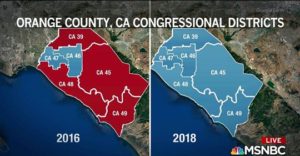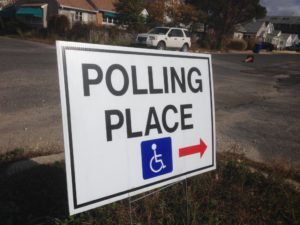
Move over, Texas. You — I mean “we” — are being replaced as the butt of jokes related to election incompetence and possible corruption.
There once was a time when Texas was known for dead people casting ballots in, say, tiny Duval County in the southern part of the state. It was thought that the cadaver vote vaulted Lyndon Baines Johnson into Congress.
As a transplant who moved to Texas more than three decades ago, I am not proud of the state’s former reputation as a cesspool for political corruption. In that regard, I feel sorry for the conscientious Floridians who now are living with the same level of skepticism.
Broward County, Fla., is in the news again. It isn’t good.
Trouble looms for 2020
They’re trying to determine the winner of two red-hot races in Florida: the campaign for governor and for U.S. Senate. The attention focuses on Broward County, home to around 2 million residents. Thus, they cast a lot of votes in that south Florida county.
They can’t seem to get ’em counted. There might be an automatic recount. Or maybe it’ll be a manual recount.
Republican Gov. Rick Scott holds a narrow lead over U.S. Sen. Bill Nelson — at the moment! GOP U.S. Rep. Ron DeSantis is barely ahead of Democratic Tallahassee Mayor Andrew Gillum. Scott and DeSantis have (more or less) declared victory. Nelson and Gillum aren’t conceding. They’re waiting … and waiting … and waiting for all the ballots to be counted.
Of course, this is far from the first time Florida has been at the epicenter of questionable electoral issues. You remember the 2000 presidential election, yes? It came down to an aborted recount of the contest between Texas Gov. George W. Bush and Vice President Albert Gore Jr. The winner would rake in the state’s Electoral College votes and win the presidency. The U.S. Supreme Court ended up ordering the vote count stopped and when it did, Gov. Bush had 537 more votes — out of more than 5.8 million ballots cast — than Vice President Gore. The court ruling came on a 5-4 vote; the five GOP appointed justices voted to stop the count, with the four Democratic appointed justices dissenting.
Well, the rest — as they say — is history.
This resident of Texas is glad to have my state kicked off the (alleged) voter fraud pedestal.
As a patriotic American, though, I do hope that our fellow Americans in Florida can cure what ails that state’s electoral process. Our political process needs to be free of this kind of turmoil.
I just pray the Russians aren’t involved.









